| Kevin Muir Jan 25 |
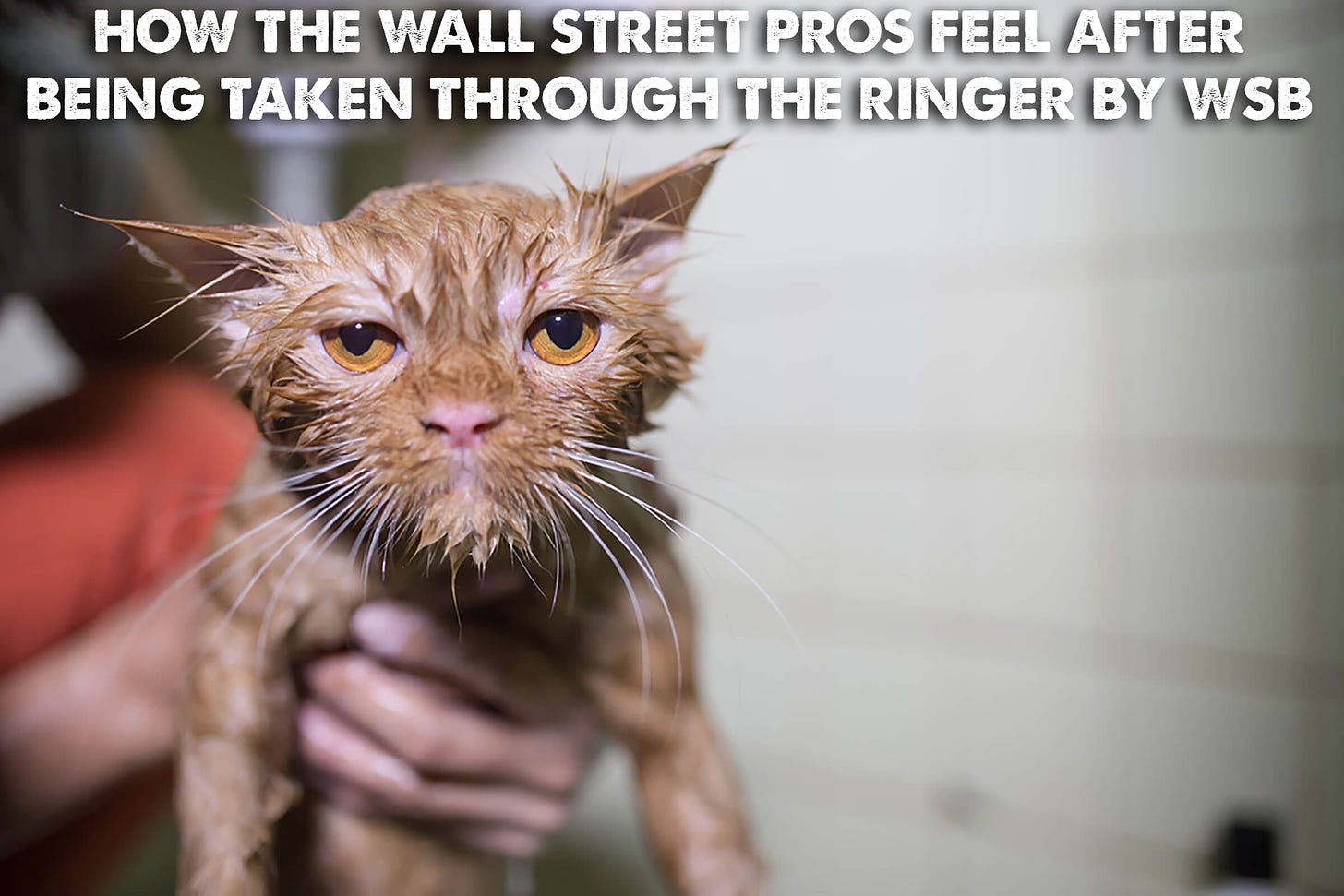
Say what you want, but this is one of the best trading markets I can remember in ages. For those complaining the moves make no sense – I agree! But – this is way better than those quiet-no-one-is-interested sleepy sessions.
This morning’s action was just plain wild. No other way to describe it.
Take a gander at the past two day’s of trading in Game Stop:
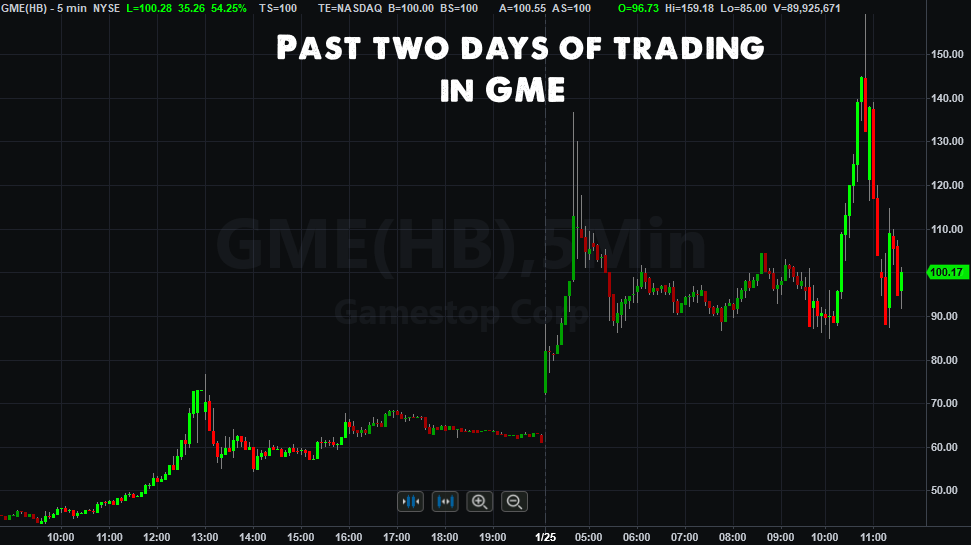
This is a stock that a week ago was trading at $40, and the week before that $20. This morning, it ticked north of $150. A few days ago, famed short seller Andrew Left from Citron Capital, withdrew from public discussions about this company after receiving death threats against his family. The absurdity of anyone feeling strongly enough to threaten death on someone with a differing opinion of a company’s prospects says a lot about the emotional nature of this market.
You see, a group of enthusiastic of traders on a reddit sub-group called Wall Street Bets (WSB), orchestrated a squeeze on GME. I won’t bother repeating all their scheming, but there is little doubt that this was a concerted effort by a group of traders to squeeze a heavily-shorted stock.
Now, you may believe anyone foolish enough to short a stock with such a high short-interest deserves what they get. I’m not here to figure out the morality of this situation.
Instead, I want to bring to your attention an often overlooked by-product of this recent market action.
This morning’s squeeze wasn’t just relegated to GME.
There was a whole host of heavily-shorted names that got ramped.
Bed, Bath and Beyond:
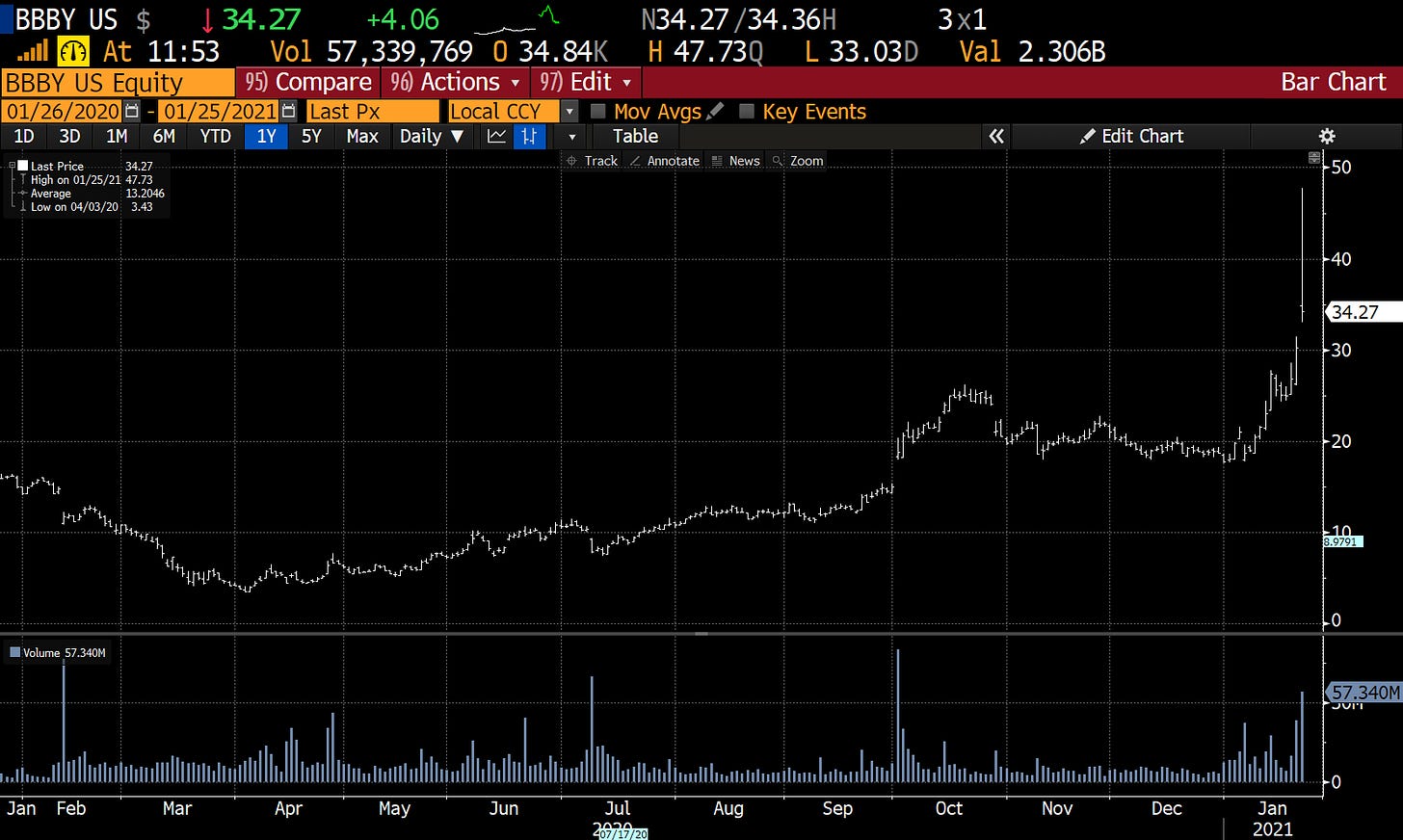
iRobot:
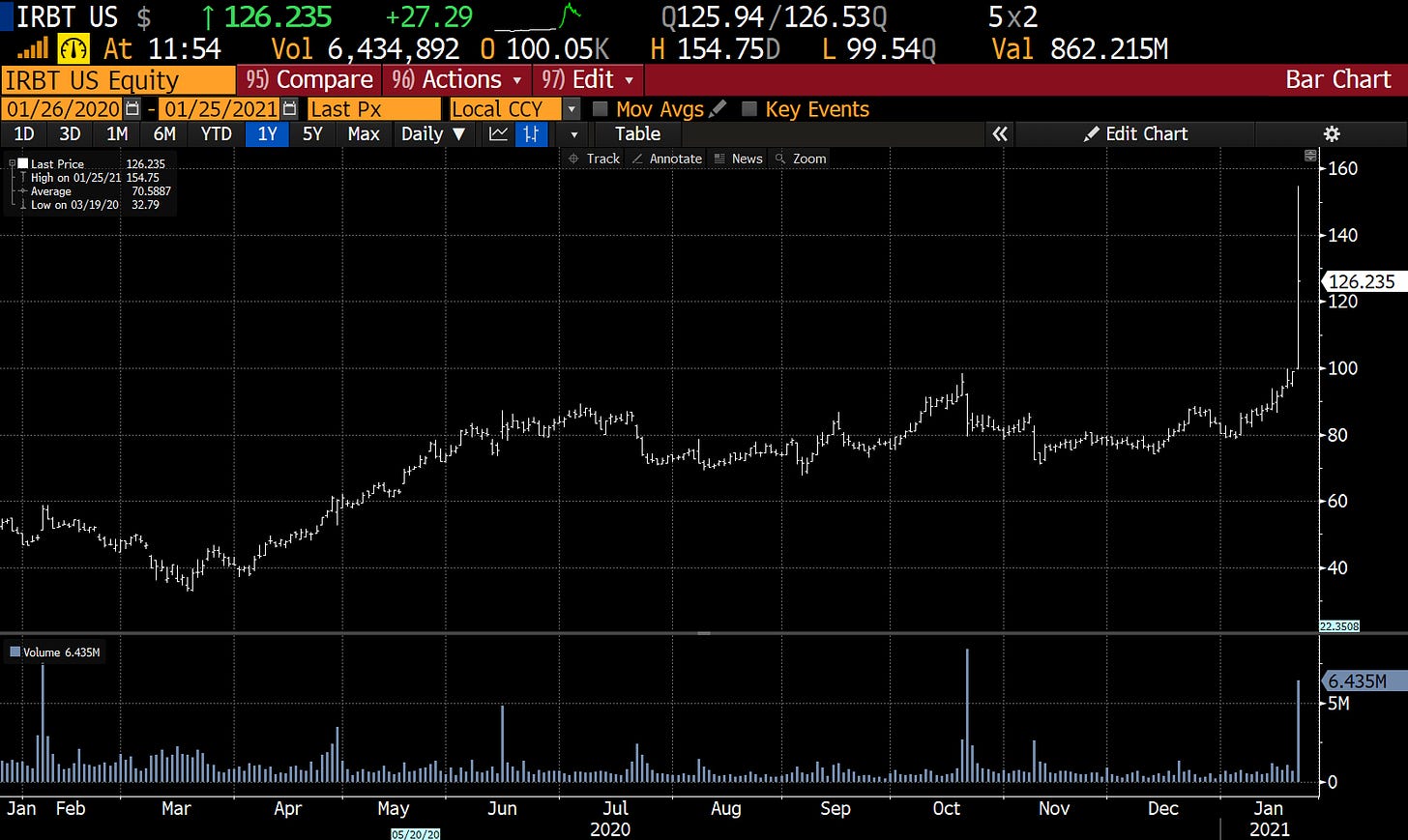
Express Inc:
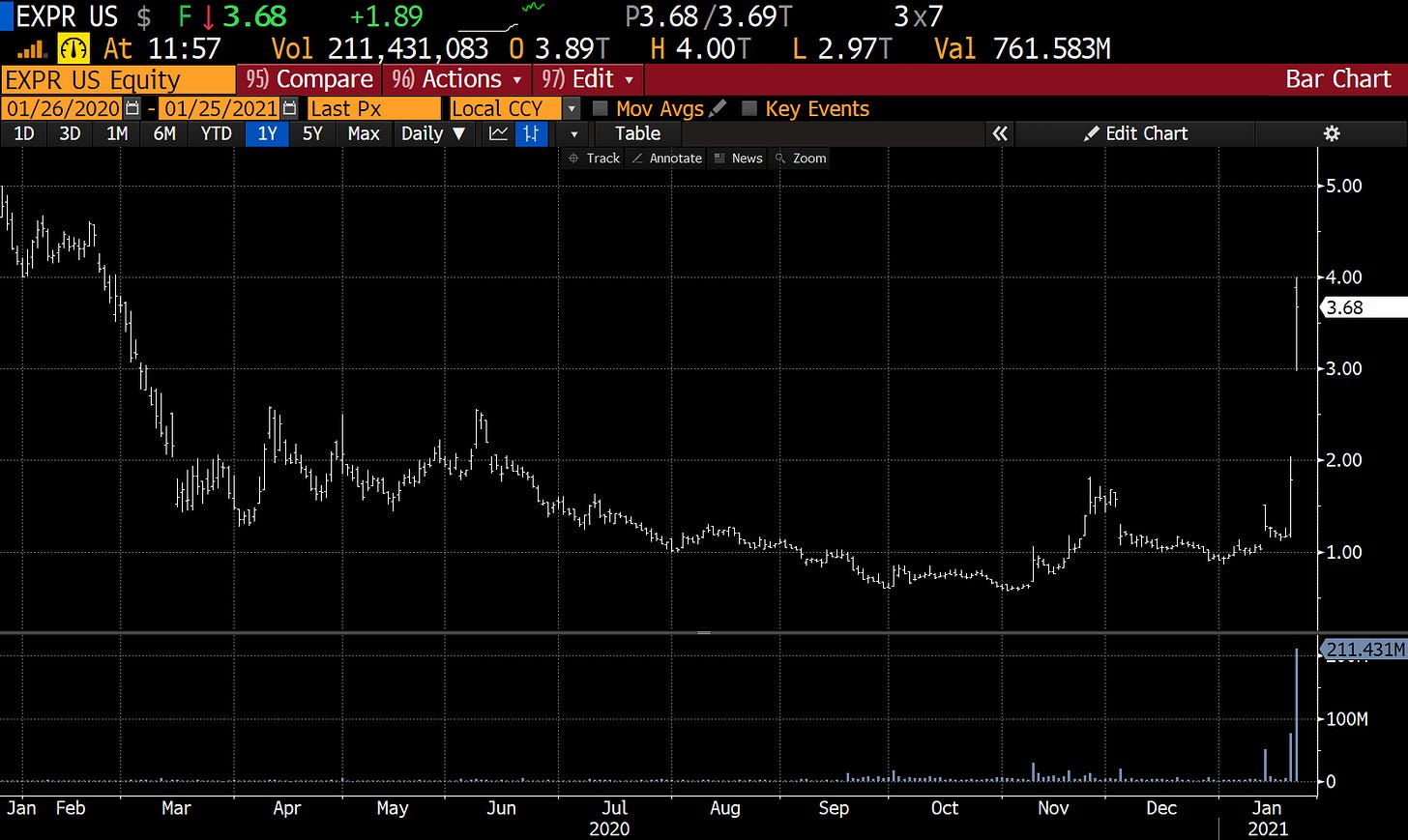
The more heavily shorted the name, the more it was a target this morning.
The problems arise due to the fact that there are a whole slew of quantitative and fundamentally based large hedge funds short these names. For example, many on WSB were supposedly specifically targeting Melvin Capital’s large short book. When the stocks that these funds were short all collectively get squeezed, this increased the volatility of their portfolio.
Look at GameStop. Two weeks ago, $1 was considered a decent-sized move.
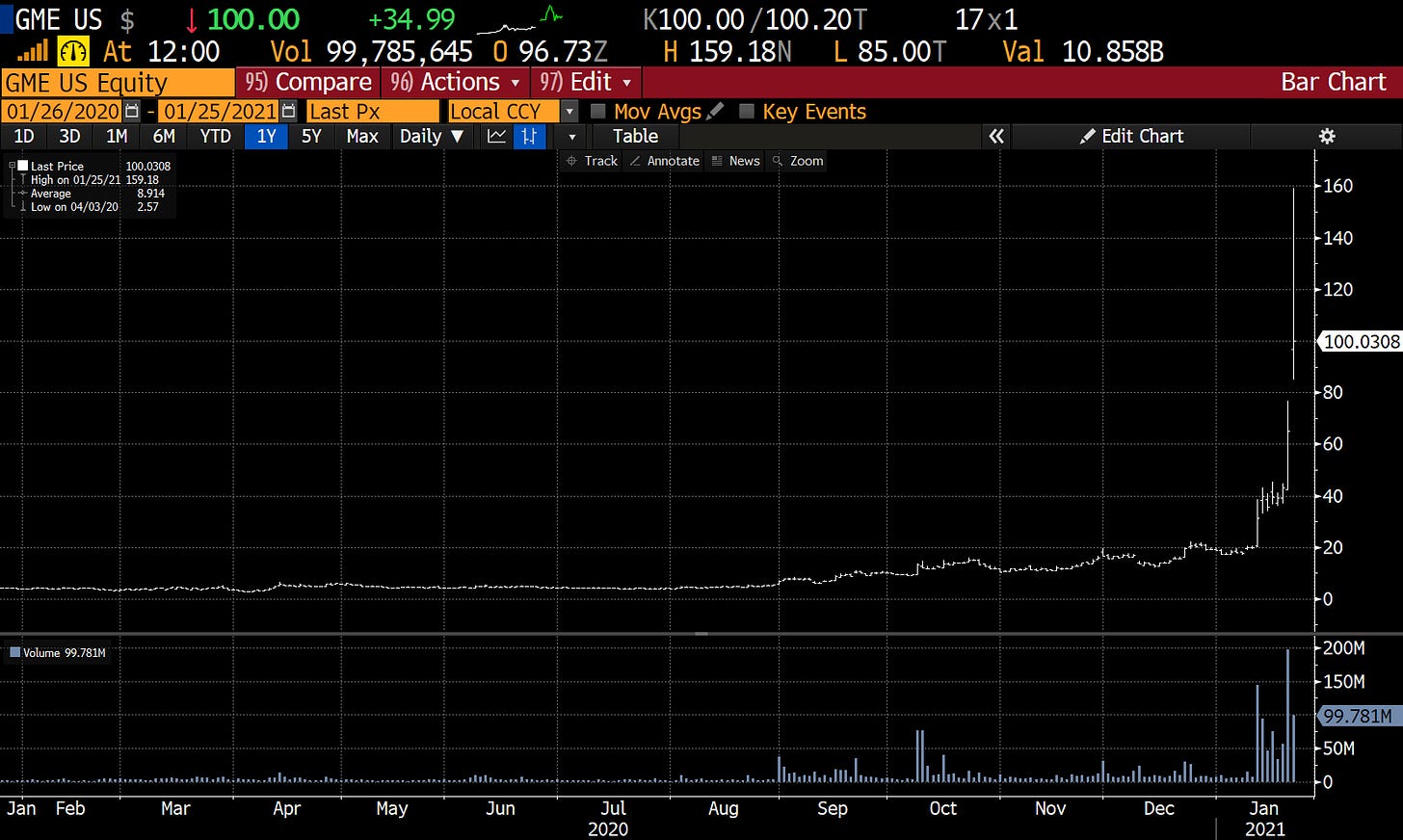
Earlier today, we were up over $90 at one point!
That’s an obscene change in the dollar value of an expected daily move.
This morning’s WSB concerted-squeeze ended up being a massive increase in the volatility of the short book for many of these hedge funds.
When this happens, these funds are faced with two unfortunate developments – P&L losses and increases in their daily VAR (value-at-risk). These two factors combine to force a general de-risking of the fund’s portfolio.
If you were wondering why Nasdaq all-of-a-sudden plunged this morning, it was most likely from this effect:
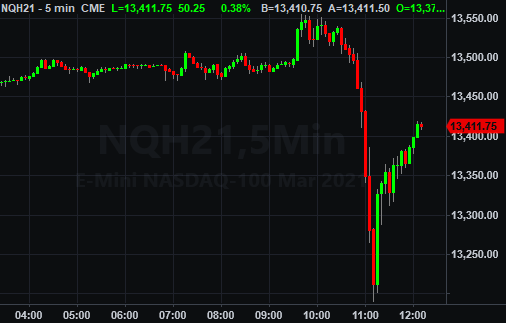
And this lesson does not apply solely to increases in volatility to the heavily-shorted stocks portion of a hedge fund’s portfolio. Any increase in volatility will often have the same effect.
The reality is that most modern-portfolio management uses volatility-of-returns as a method of “dialing” the amount of risk they are willing to hold. Some funds use hourly volatility, some use daily, and others use monthly, but make no mistake – the more volatile, the less risk these funds are willing to take.
So, ironically, this morning’s WSB squeeze that took many of these individual stocks higher, caused a general de-risking from many of the large sophisticated hedge funds.
And the real question is whether this selling starts a negative feedback loop.
I’m not smart enough to know the answer to that question, but I wanted to take a moment to explain why even though it might seem like the stock market bulls should be cheering WSB’s squeezes, their success might end up being the trigger that brings about the general stock market correction many have been waiting for.
Remember – increases in volatility cause general de-risking from hedgies and other quantitively-modeled funds. The greater increase in volatility, the more they have to sell.
Watch the VIX closely in the coming days. If we get an increase in demand for protection, this will also cause some “vanna” related selling which could reinforce the negative feedback loop.
The danger signs are piling up. I continue to trade defensively.
Thanks for reading,
Kevin Muir
the MacroTourist